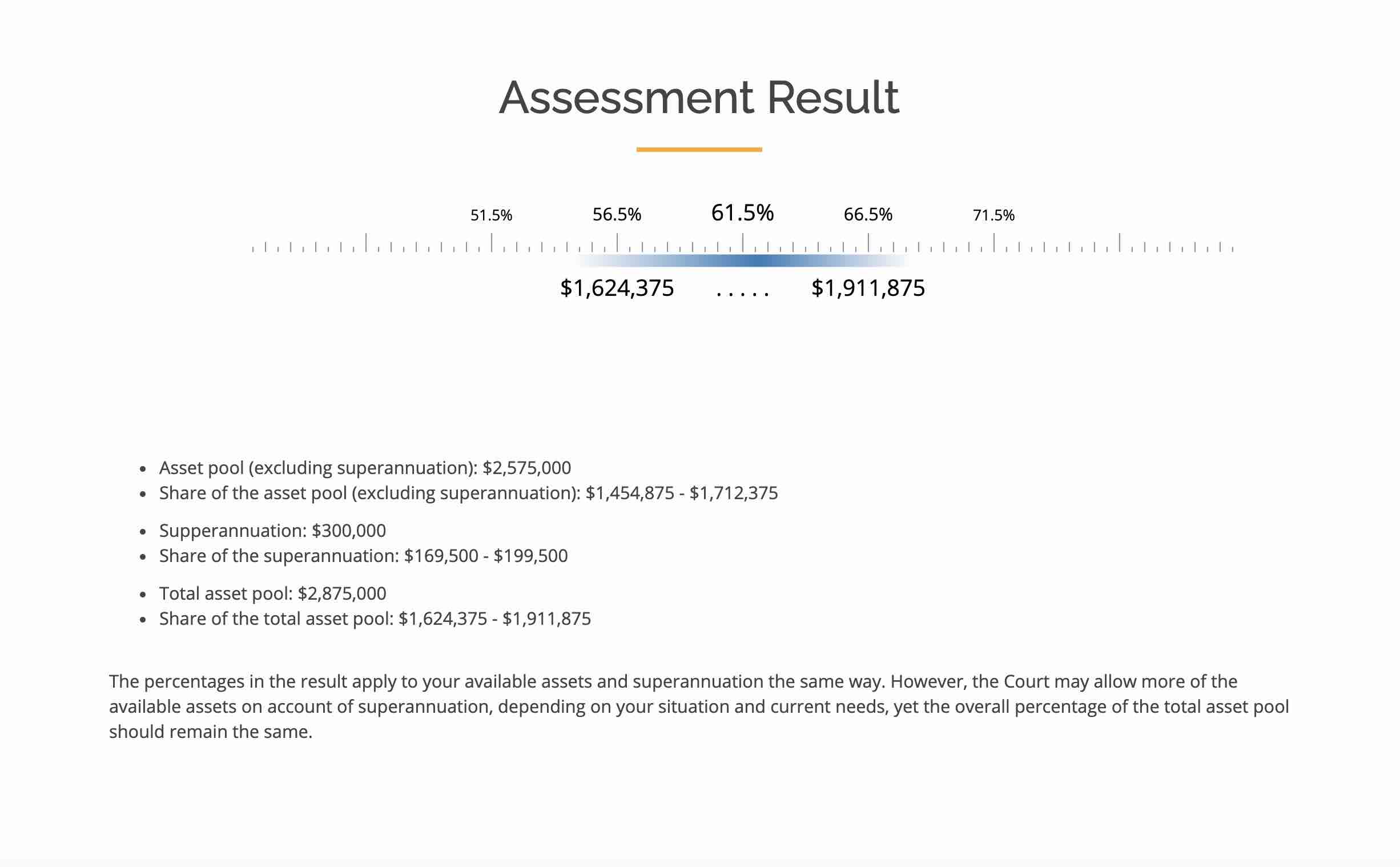Spousal maintenance and child support are two different things which are non-related. Both can
become applicable following separation.
“Child Support – Services Australia" is the government department which is responsible to assess, collect and transfer payments of child support. As soon as you are separated, you may apply to “Child Support – Services Australia” for an assessment of your entitlement to child support.
Child support is determined by a formula which takes into accounts the earnings of each spouse party and the number of nights the children spend with each spouse party These details are applied into a table which determines the amount a child requires in order to maintain a necessary standard of living, and accordingly a certain amount per annum is calculated and then divided into monthly/weekly payments. You can log on to “Child Support – Services Australia” website and calculate an estimate of the child support you should be entitled to receive or obligated to pay.
Parties can reach an agreement between them as to the child support to be paid and ‘contract out’ of “Child Support – Services Australia”. That means that the child support agreement will determine the amount to be paid, and there would not be a need for an assessment. Such agreements must be done by family lawyers and each spouse party should receive independent legal advice from his or her family lawyer. Otherwise, such child support agreement is not enforceable.
In some cases, which are more complex, a spouse party can apply to the Family Courts to determine the child support to be paid. In such cases the Family Courts will determine the child support to be paid instead of the assessment by “Chid Support – Services Australia”. The Family Courts can decide that the child support payment be done by one lump sum payment or by periodic payments. That decision by the Family Courts will replace any assessment made by “Child Support – Service Australia”.
Spousal maintenance is usually limited to a certain period of time (for example to allow a party to find a job and get back on his/her feet). However, they can be ordered for longer periods of time if the receiving party does not have the ability to support himself/herself.
Unlike child support, there is no special government department that deals with it. You can only obtain an order from the Family Courts or by way of a financial agreement with a certificate of independent legal advice from family lawyers.
There are two basic requirements in order to be entitled to an order for spousal maintenance. First, you must demonstrate that you are unable to support yourself. Second, you must prove that the other spouse party has sufficient income to not only support themselves but to also support you, in full or in part.
Unlike child support, there is no table of fixed amount for cost of living, and these vary from case to case. It may also depend on the standard of living which the parties used to have during the relationship. The Family Courts will take all these considerations into account and determine the appropriate amount to be paid for spousal maintenance and the period it should be paid. Spousal maintenance could be paid by way of lump sum payment or periodic payments.
Spousal maintenance can also be claimed after property settlement had been reached, as property settlement does not necessarily finalise the issue of spousal maintenance. The right to claim spousal maintenance remains alive for married couples until one year after a divorce order had been made or until two years after separation for de facto couples (this period may be extended by special leave of the Family Courts).
In order to be certain that spousal maintenance is finalised and cannot be raised again, assuming it was not already determined by the Family Courts, parties must execute a financial agreement and include in it provisions with respect to spousal maintenance, waiving any such rights to a claim against each other. As explained above with respect to financial agreements, these can only be done by each party receiving independent legal advice from a family lawyer.
Child support
Child support is an amount which is required to be paid for the living costs of children. While it is usually relevant to children who are still minors (under 18 years old), in some cases it may continue to apply until older ages.“Child Support – Services Australia" is the government department which is responsible to assess, collect and transfer payments of child support. As soon as you are separated, you may apply to “Child Support – Services Australia” for an assessment of your entitlement to child support.
Child support is determined by a formula which takes into accounts the earnings of each spouse party and the number of nights the children spend with each spouse party These details are applied into a table which determines the amount a child requires in order to maintain a necessary standard of living, and accordingly a certain amount per annum is calculated and then divided into monthly/weekly payments. You can log on to “Child Support – Services Australia” website and calculate an estimate of the child support you should be entitled to receive or obligated to pay.
Parties can reach an agreement between them as to the child support to be paid and ‘contract out’ of “Child Support – Services Australia”. That means that the child support agreement will determine the amount to be paid, and there would not be a need for an assessment. Such agreements must be done by family lawyers and each spouse party should receive independent legal advice from his or her family lawyer. Otherwise, such child support agreement is not enforceable.
In some cases, which are more complex, a spouse party can apply to the Family Courts to determine the child support to be paid. In such cases the Family Courts will determine the child support to be paid instead of the assessment by “Chid Support – Services Australia”. The Family Courts can decide that the child support payment be done by one lump sum payment or by periodic payments. That decision by the Family Courts will replace any assessment made by “Child Support – Service Australia”.
Spousal maintenance
Spousal maintenance is an amount paid by one spouse party to the other for the cost of living of the other spouse party. It is relevant only if parties are unable to support themselves from their own earnings.Spousal maintenance is usually limited to a certain period of time (for example to allow a party to find a job and get back on his/her feet). However, they can be ordered for longer periods of time if the receiving party does not have the ability to support himself/herself.
Unlike child support, there is no special government department that deals with it. You can only obtain an order from the Family Courts or by way of a financial agreement with a certificate of independent legal advice from family lawyers.
There are two basic requirements in order to be entitled to an order for spousal maintenance. First, you must demonstrate that you are unable to support yourself. Second, you must prove that the other spouse party has sufficient income to not only support themselves but to also support you, in full or in part.
Unlike child support, there is no table of fixed amount for cost of living, and these vary from case to case. It may also depend on the standard of living which the parties used to have during the relationship. The Family Courts will take all these considerations into account and determine the appropriate amount to be paid for spousal maintenance and the period it should be paid. Spousal maintenance could be paid by way of lump sum payment or periodic payments.
Spousal maintenance can also be claimed after property settlement had been reached, as property settlement does not necessarily finalise the issue of spousal maintenance. The right to claim spousal maintenance remains alive for married couples until one year after a divorce order had been made or until two years after separation for de facto couples (this period may be extended by special leave of the Family Courts).
In order to be certain that spousal maintenance is finalised and cannot be raised again, assuming it was not already determined by the Family Courts, parties must execute a financial agreement and include in it provisions with respect to spousal maintenance, waiving any such rights to a claim against each other. As explained above with respect to financial agreements, these can only be done by each party receiving independent legal advice from a family lawyer.






